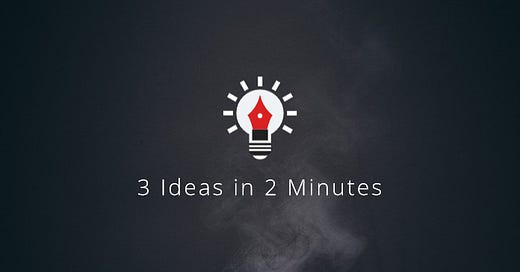#190: Learning Pyramid, Competence Illusion & Yogi’s Dictum
3 Ideas in 2 Minutes on Theory and Practice
I. Learning Pyramid
The Learning Pyramid (aka Cone of Experience) is a popular learning model that suggests we retain information to various degrees depending on how we learn it. Supposedly, we remember:
5% of what we hear in a lecture
10% of what we read
20% of what we consume audiovisually
50% of what we learn through group discussion
75% of what we learn through practice
90% of what we teach.
The pyramid is often attributed to researchers at the American National Training Laboratories. But the evidence base for it is questionable. It seems like the Learning Pyramid is a great example of the Woozle Effect: “Repeat a claim often enough, and people will believe it.”
👉 Anyway, that didn’t keep me from writing about the Feynman Technique 2.0, a method that promotes learning through teaching.
II. Competence Illusion
Competence Illusion is my term for the misguided belief that getting good at isolated skills amounts to mastery in a field. In reality, mastery is achieved by becoming competent in one isolated skill at a time while seamlessly combining them all.
You may think you’ve grasped some of Chris Voss’ basic negotiation strategies, such as Calibrated Questions and Dynamic Silence. Perhaps you even got some good results with them. Until you’re up against a true master negotiator who shows you that your sense of competence was just an illusion.
Or imagine a jiu-jitsu coach showing a new submission technique. Students drill it with their partners until they’re pretty good at it. It works! Then they roll with the coach who demonstrates to them all the defences against the technique they just learned. So is the new technique useless?
To achieve true mastery, you must practice isolated skills, and then incorporate them into your game with all their nuances, contradictions, trade-offs, countermeasures and countermeasures to the countermeasures.
III. Yogi’s Dictum
Lawrence Peter “Yogi” Berra was a baseball player and coach who knew a thing or two about the difference between theoretical knowledge and practical application.
In theory there is no difference between theory and practice. In practice there is.
—Yogi Berra
👉 On a related note, you may also be interested in my classic essay about the Four Stages of Competence: How We Learn New Skills. 🐘
Have a great week,
Chris
themindcollection.com



